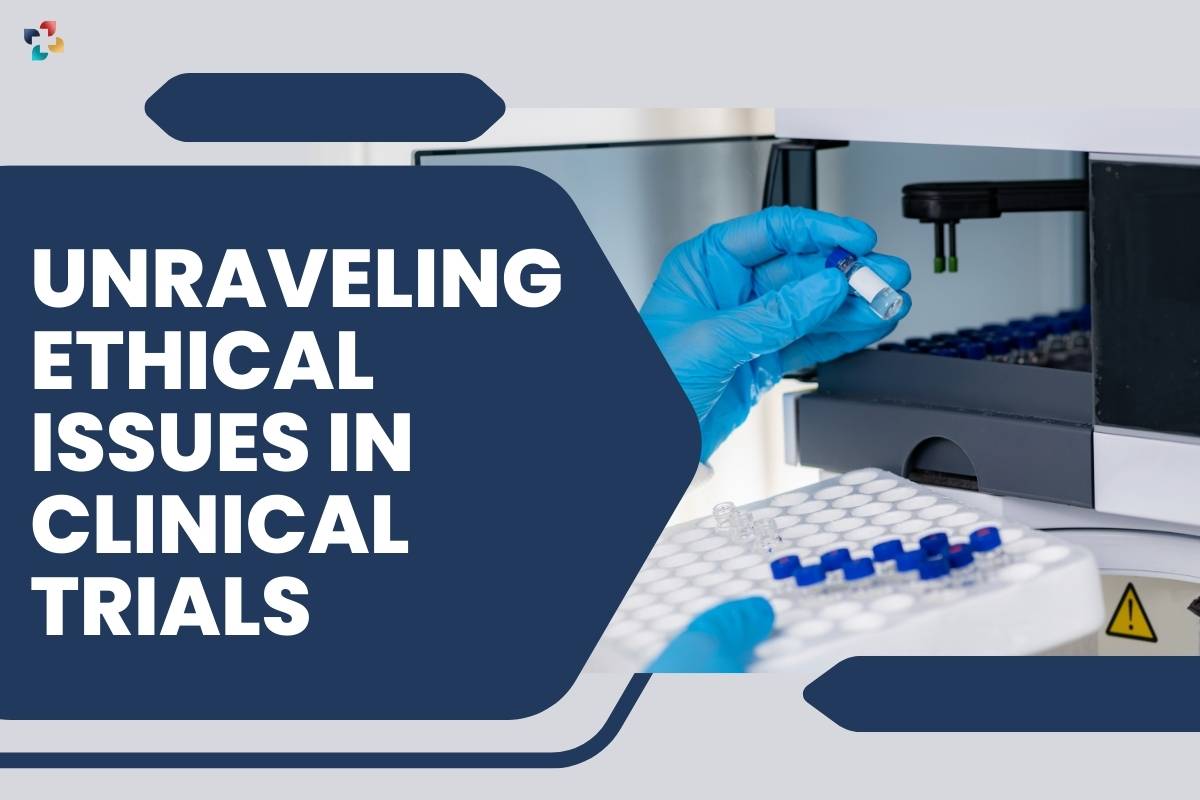The creation of novel medical interventions and treatments often begins with clinical trials. But among all of this scientific progress, there are a lot of intricate ethical issues that need to be carefully considered. Examining the moral concerns surrounding clinical trials is essential for safeguarding participant rights and well-being, upholding scientific integrity, and building public confidence. This article explores the complex realm of clinical trials, highlighting moral dilemmas, precautions, and the continuous pursuit of moral perfection.
Here are Unraveling Ethical Issues in Clinical Trials:
1. Informed Consent: A Cornerstone of Ethics
At the heart of ethical considerations in clinical trials is the concept of informed consent. Participants must be fully informed about the purpose, risks, and potential benefits of the trial before deciding to enroll. The challenge lies in ensuring that this process is truly comprehensible to individuals with diverse educational backgrounds and varying levels of health literacy.
2. Vulnerable Populations: Balancing Inclusion and Protection

Including vulnerable populations, such as children, pregnant women, and the elderly, in clinical trials raises ethical dilemmas within the broader context of Ethical Issues. Striking a balance between the imperative to gather data on diverse demographics and the need to protect those who may be more susceptible to harm requires careful ethical consideration in the realm of Ethical Issues in Clinical Trials.
3. Placebo Use: Balancing Scientific Rigor and Patient Welfare
Placebos play a crucial role in clinical research, allowing for the assessment of a treatment’s efficacy. However, the use of placebos raises ethical concerns, particularly when effective treatments already exist. Ethical guidelines emphasize the importance of minimizing placebo use and ensuring that participants are not denied standard care when it is available.
4. Randomization: Equitable Allocation of Risks and Benefits
Randomization, a hallmark of rigorous clinical trials, aims to ensure unbiased treatment allocation. However, the ethical challenge lies in balancing the scientific necessity of randomization with the ethical obligation to treat participants fairly and minimize potential harms.
5. Data Transparency: Upholding Scientific Integrity
The ethical imperative of data transparency is essential for maintaining scientific integrity within the realm of Ethical Issues in Clinical Trials. Researchers have an ethical duty to report their findings accurately, and sponsors must disclose all relevant trial information, including negative results, in the context of Ethical Issues in Clinical Trials. Failure to do so can compromise the validity of scientific knowledge and undermine public trust within the sphere of Ethical Issues in Clinical Trials.
6. Conflicts of Interest: Navigating the Web of Relationships

Conflicts of interest among researchers, sponsors, and institutions can introduce bias and compromise the objectivity of clinical trials. Full disclosure of potential conflicts, along with mechanisms to mitigate their impact, is crucial for maintaining the ethical integrity of the research process.
7. Post-Trial Access to Treatment: Ethical Obligations Beyond the Study
Ensuring post-trial access to effective treatments is an ethical imperative. Participants who have contributed to the advancement of medical knowledge should not be left without access to the interventions that prove beneficial during the trial. Striking a balance between research objectives and participants’ long-term well-being is a delicate ethical consideration.
8. Monitoring and Oversight: Safeguarding Participant Welfare
Ethical oversight and monitoring mechanisms are integral to safeguarding participant welfare. Institutional Review Boards (IRBs) play a pivotal role in evaluating the ethical aspects of a clinical trial, and ongoing monitoring helps identify and address emerging ethical issues during the study.
9. Globalization of Clinical Trials: Addressing Global Ethical Standards
As clinical trials increasingly occur on a global scale, ethical standards must transcend geographical boundaries within the realm of Ethical Issues in Clinical Trials. Ensuring that trials conducted in diverse locations adhere to universally accepted ethical principles is crucial for maintaining the integrity of the research and protecting the rights of participants worldwide in the context of Ethical Issues in Clinical Trials.
10. Publication Bias: Ethical Implications for the Scientific Community
Publication bias, the tendency to publish positive results while neglecting negative findings, poses ethical challenges. This selective reporting can mislead the scientific community, healthcare professionals, and the public. Ethical conduct demands the transparent and unbiased reporting of all trial outcomes, regardless of their perceived significance.
11. Data Security and Privacy: Safeguarding Sensitive Information
The increasing reliance on electronic data in clinical trials raises concerns about data security and privacy. Ethical considerations extend to protecting participants’ sensitive information from unauthorized access, ensuring confidentiality, and implementing robust data security measures.
12. Community Engagement: Building Trust and Collaboration
Engaging with local communities is an ethical imperative in clinical research, particularly in the context of global trials. Building trust, respecting cultural nuances, and involving communities in the research process helps ensure that trials are ethically conducted and that the benefits of research are shared equitably.
13. Emergency Situations: Ethical Considerations in Urgent Trials
In emergencies, such as pandemics or outbreaks, the urgency of finding effective treatments may challenge traditional ethical norms. Striking a balance between the need for rapid response and maintaining ethical standards is a complex but essential consideration in urgent clinical trials.
14. Long-Term Follow-Up: Ethical Obligations Beyond Trial Completion

Ethical considerations extend beyond the conclusion of a trial, particularly in long-term studies. Researchers and sponsors have an ethical obligation to monitor participants for potential long-term effects, ensure post-trial access to beneficial interventions, and contribute to the ongoing understanding of treatment outcomes.
15. Educating Researchers and Participants: Fostering Ethical Literacy
Promoting ethical conduct in clinical trials requires continuous education and awareness among researchers, sponsors, and participants. Ethical literacy ensures that stakeholders are well-informed about their rights and responsibilities, fostering a culture of ethical practice in the realm of clinical research.
Conclusion:
Clinical trials have a complex and ever-changing ethical landscape. It is crucial to negotiate these challenges as medical research develops while maintaining a strong commitment to participant welfare, scientific integrity, and public confidence. The scientific community can guarantee that clinical trials continue to be a shining example of advancement while maintaining the highest standards of ethical behaviour by addressing and minimizing ethical difficulties.
Also Read: 10 Strategies for Clinical Trials Recruitment Marketing











